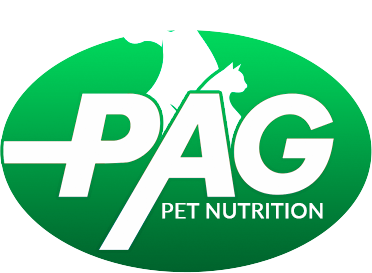
14 Mar 2025 Pet Supplement Market Trends: New Opportunities and Challenges
Introduction
The pet supplement market has been experiencing significant growth over the past few years, driven by increasing pet ownership, rising awareness of pet health, and the growing trend of pet humanization. The National Pet Owners Survey reveals a growing demand for dog supplements, highlighting the expanding pet dietary supplements market as pet owners prioritize pet care and their pets’ overall health.More pet owners are viewing their pets as integral family members and are willing to invest in pet dietary supplements to ensure their furry companions live healthier and longer lives.
According to recent market analysis, the global pet supplements market is expected to grow at a compound annual growth rate (CAGR) of 5-7%, reaching an estimated $4.3 billion by 2033. This market growth is being fueled by factors such as:
The rising cost of veterinary care, pushing pet owners to seek preventive healthcare solutions.
An aging pet population, increasing the demand for joint supplements and other targeted health solutions.
The rise of e-commerce, making it easier for pet owners to purchase pet supplements online and receive them through subscription-based models.
Growing consumer preference for natural and organic pet supplements, aligning with trends in human nutrition.
As competition intensifies, industry players must understand key market trends, challenges, and opportunities to remain ahead in the ever-evolving pet supplement industry. This article explores the outlook for the pet supplement market in 2025, focusing on market size, key growth drivers, emerging trends, industry challenges, and new opportunities.

The Pet Supplement Market Trends 2025: Growth and Key Drivers
Market Size and Growth Trends
The pet supplement market size has been expanding consistently, with North America remaining the dominant market, followed by Asia-Pacific and Europe. The increasing demand for specialized supplements for dogs, cats, and other pets has resulted in robust growth in pet dietary supplements.
Key market trends contributing to this growth include:
Pet Humanization: More pet parents are seeking functional supplements to support their pets’ joint health, digestive health, and overall well-being.
Increasing Pet Ownership: The rising number of pet adoptions, especially among millennials and Gen Z pet owners, is boosting demand for pet health products.
Veterinary Costs Driving Preventive Care: With the rising costs of pet healthcare, more pet owners are turning to pet supplements to maintain their pets’ health and reduce medical expenses.
Key Drivers of Market Growth
The Aging Pet Population and Specialized Supplements
Senior pets (over 7 years old) now make up approximately 44% of the pet population, leading to an increase in demand for joint supplements, cognitive health supplements, and digestive aids.
Pet owners are looking for ways to extend the quality of life for aging pets through specialized supplements that support joint health and mobility.
The Expansion of E-commerce in Pet Supplement Sales
The convenience of online shopping is fueling the growth of direct-to-consumer (DTC) models for pet supplement sales.
Subscription-based services allow pet parents to receive regular deliveries of their pets’ dietary supplements without the hassle of going to pet specialty stores.
Digital marketing and social media are playing a significant role in increasing awareness among pet owners about the benefits of pet supplements.
Key Trends in the 2025 Pet Supplement Market
What Are the Trends for Pets in 2025?
As pet owners become more health-conscious, they are demanding higher-quality, natural, and functional pet supplements that meet specific health and wellness needs.
Some emerging trends include:
Personalized Pet Nutrition: Supplements tailored to specific health conditions, breeds, and life stages.
Natural and Organic Supplements: Growing demand for chemical-free, non-GMO, preservative-free pet dietary supplements.
Functional Supplements Targeting Specific Health Concerns:
Joint Health & Mobility: High demand for glucosamine, chondroitin, and omega-3-based joint supplements.
Digestive Health: Increased use of probiotics and prebiotics to support gut health.
Skin and Coat Health: Supplements with omega fatty acids and antioxidants to reduce allergies and promote coat shine.
Anxiety & Stress Relief: CBD and herbal-based supplements for managing pet stress and anxiety.
Pet Supplement Market vs. Pet Food Market
While pet food provides complete daily nutrition, pet supplements serve targeted health benefits.
Category
Pet Supplements
Pet Food
Purpose
Supports specific health conditions
Provides complete daily nutrition
Types
Probiotics, joint health, skin & coat, cognitive health, CBD, vitamins
Dry food, wet food, raw food, prescription diets
Market Growth
5-7% CAGR
4-5% CAGR
Key Drivers
Aging pets, pet humanization, rising vet costs
Sustainability, breed-specific diets, human-grade ingredients
Consumer Preferences
Natural, organic, functional benefits
High-protein, grain-free, fresh ingredients
Challenges in the Pet Supplement Industry
Regulatory Hurdles and Compliance Issues
Lack of clear regulations from governing bodies like the FDA, AAFCO, and EU makes it challenging for pet supplement companies to navigate the market.
Ensuring product safety and efficacy is crucial for market credibility.
Market Saturation and Increased Competition
More brands are entering the pet supplements market, making differentiation essential.
The need for scientific validation, transparency, and clinically backed claims is increasing.
Consumer Education and Awareness
Many pet owners lack knowledge about proper supplement dosages and interactions.
Companies must invest in educational marketing strategies to build consumer trust.
Opportunities for Growth in the Pet Supplement Industry
Expansion into Emerging Markets
Countries like India, China, and Brazil are experiencing rising pet ownership, creating new opportunities for pet health brands.
Increasing demand for premium pet dietary supplements presents market growth potential.
Innovation in Product Development
Introduction of new product formats, such as soft chews, powders, and liquid supplements for easier administration.
Integration of smart pet health tracking devices to provide personalized supplement recommendations.
Sustainability and Ethical Sourcing
Consumers are prioritizing eco-friendly packaging and sustainably sourced ingredients.
Companies adopting carbon-neutral supply chains are gaining a competitive advantage.

What is the Outlook for the Pet Industry in 2025?
Pet supplement sales will continue to grow, driven by the rise of functional, natural, and science-backed products.
More pet owners are prioritizing preventive healthcare, leading to increased market demand for dietary supplements.
Strategic partnerships between veterinarians, supplement companies, and health-tech firms will enhance product development and consumer trust.
Conclusion
The 2025 pet supplement market presents exciting opportunities for growth, innovation, and investment. To stay competitive, companies must focus on:
Regulatory compliance
Digital transformation
Sustainability initiatives
Education-driven marketing
As pet humanization continues to grow, pet parents will increasingly seek high-quality, natural, and functional supplements to improve their pets’ health and longevity. Businesses that adapt to these market trends will be well-positioned for success in this evolving industry.

